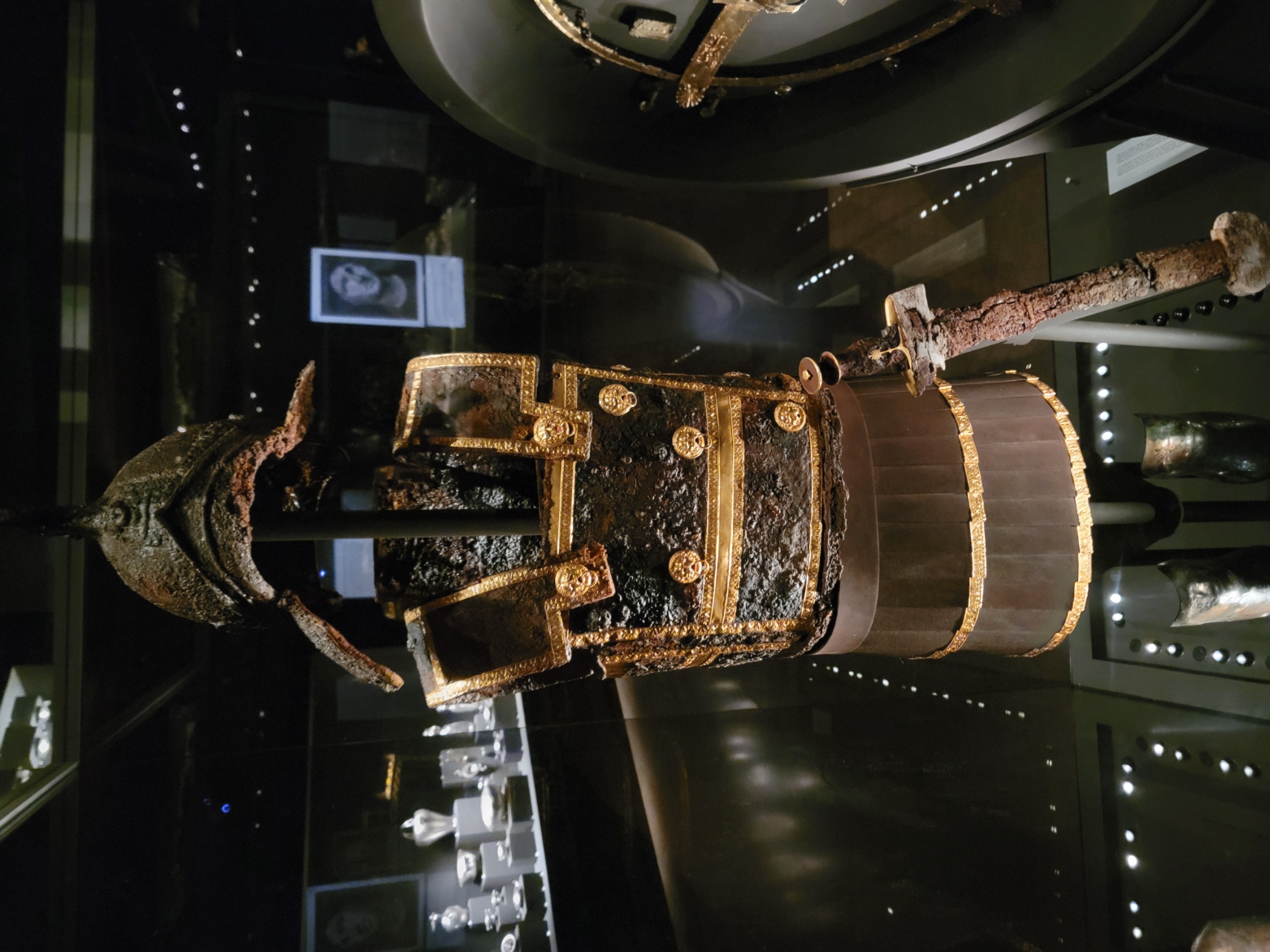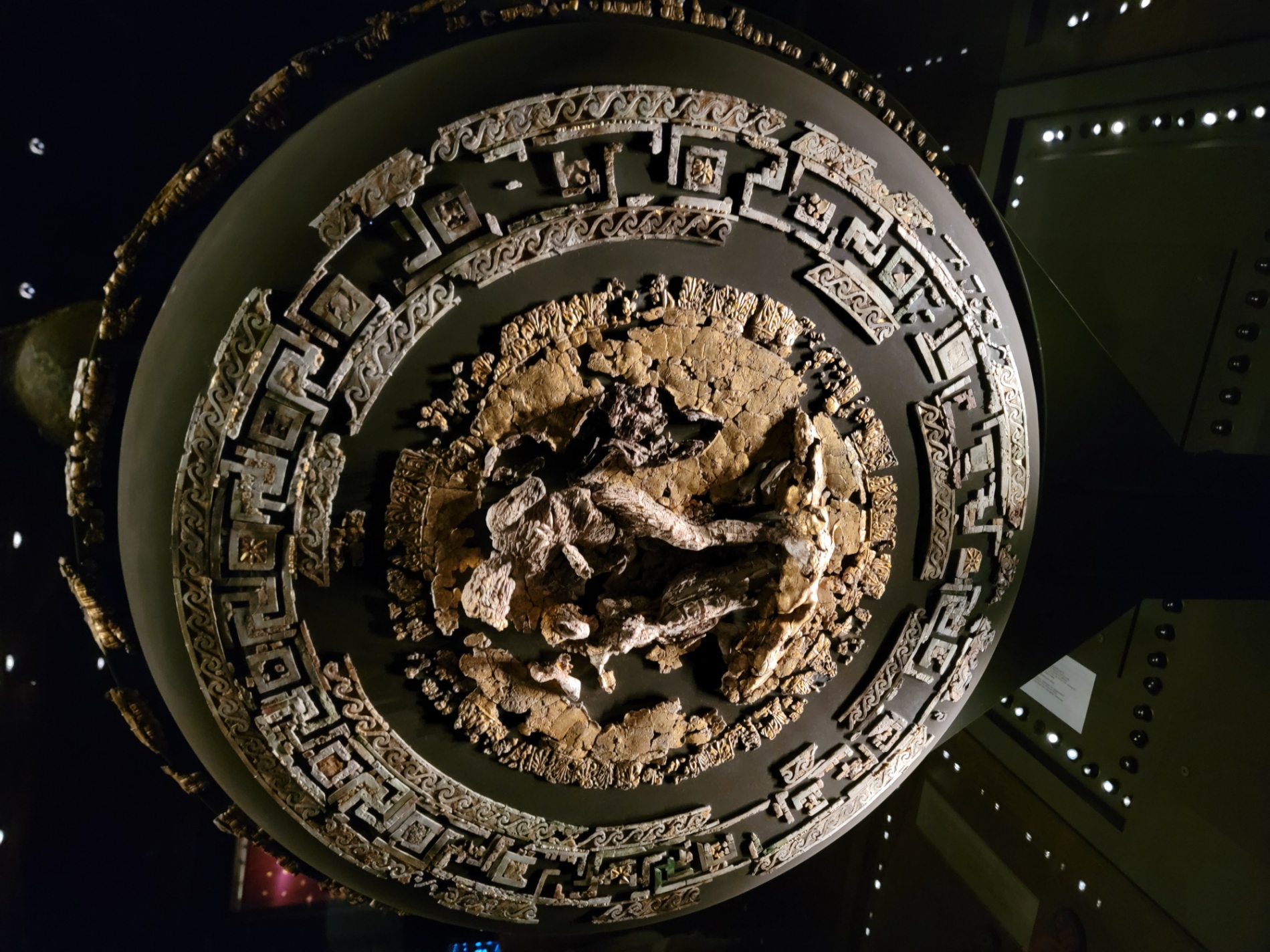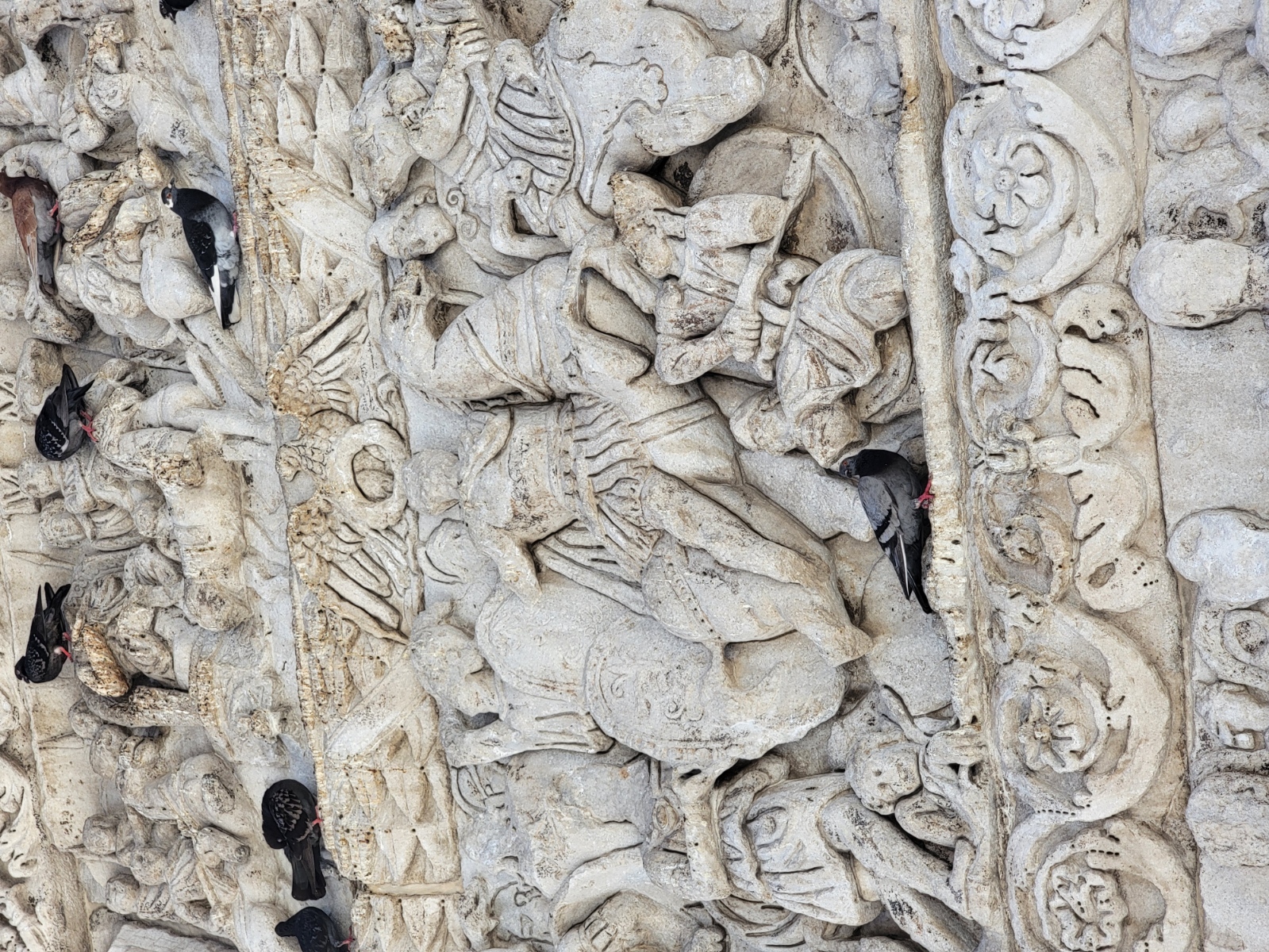07 - A King-Sized Conundrum: Greece and Macedonia's Legacy Showdown
This past weekend I had the opportunity to visit northern Greece and explore the Greek’s side of the Macedonian debate. I was able to visit the archaeological sites of Pella and Aigai, as well as the modern city of Thessaloniki.
Pella & Aigai
Aigai, known as Vergina today, holds a pivotal place in the history of ancient Macedonia as its first capital. Founded in the early first millennium BC, Aigai was strategically situated in the foothills of the Pierian Mountains, offering natural defense and access to fertile plains. This location allowed the city to flourish as a political, cultural, and religious center of the Macedonian kingdom. The city is especially renowned for its role in the life and death of Macedonian royalty, serving as the traditional burial site for the Macedonian kings and a hub for royal ceremonies.
The most remarkable discovery in Aigai is the Great Tumulus, which houses several royal tombs, including the tomb of Philip II, the father of Alexander the Great. Discovered in the late 1970s, Philip II's tomb was never raided, making it one of the rarest finds in archaeological history similar to the discovery of King Tut. The tomb, along with Alexander the Great’s son’s tomb, was a treasure trove of artifacts, including intricate gold wreaths, armor, and other funerary goods that highlight the wealth and artistry of ancient Macedonian society. The discovery of these tombs has provided invaluable insights into the burial practices, art, and daily life of the Macedonians during their zenith.
Aigai's architectural remains are a testament to its historical significance. The city boasted a grand palace complex, considered one of the largest and most luxurious of its time, with elaborate mosaics and frescoes. The theater of Aigai is another notable structure, which not only served as a cultural venue but also as a political arena where kings addressed their people. The city also had fortified walls, sanctuaries, and public buildings that reflect its status as a thriving urban center.
Despite losing its status as the capital to the city of Pella in the late 5th century BC, Aigai continued to be a ceremonial heart of the Macedonian kingdom. Royal events such as coronations and funerals were held in Aigai. For instance, after the assassination of Philip II, Alexander the Great was proclaimed king by the people of Macedonia at Aigai, pushing aside the expected successor. The archaeological site of Aigai, a UNESCO World Heritage site, remains a focal point for historians and archaeologists, providing a deep and tangible connection to the ancient Macedonian and Greek civilizations and their enduring legacy.
Pella, the illustrious capital of ancient Macedon, rose to prominence in the late 5th century BC under the reign of King Archelaus I. Strategically located along what used to be the coastline of Thermatic Gulf, Pella replaced Aigai as the political and cultural heart of the kingdom. Its establishment marked a new era of prosperity and development as it leveraged its advantageous position to become a hub of commerce and military might. The city featured a grid system of streets and sophisticated urban infrastructure, which established it as a model of ancient city planning that the Romans eventually followed in the establishment of their colonies.
The zenith of Pella's influence came during the reign of King Philip II and his son, Alexander the Great. Philip II expanded the city's infrastructure, constructing grand palaces, public buildings, and fortifications. He also attracted artists, philosophers, and scholars to Pella, making it a center of intellectual and cultural activity. In Pella, Alexander the Great was born and educated, receiving tutelage from the philosopher Aristotle. Pella thus played a crucial role in shaping one of history's greatest military leaders and perhaps the most important person in Western Civilization.
Under Alexander the Great, Pella served as the launching point for his vast campaigns that stretched across three continents, creating an empire that spanned from Greece to Egypt and into the heart of Asia. The city's wealth and importance grew as Alexander's conquests brought immense riches and cultural exchanges. However, following Alexander's death in 323 BCE and the subsequent wars of the Diadochi, Pella's prominence began to wane. The fragmentation of Alexander's empire and the rise of the Roman Republic further diminished its status.
Despite its decline, Pella remained an important urban center under Roman rule. It retained its architectural grandeur and continued to be inhabited for several centuries. Archaeological excavations in Pella have unearthed a wealth of artifacts, including intricate mosaics, pottery, and remnants of its grand buildings, providing valuable insights into its historical significance. Today, Pella stands as a testament to the grandeur of ancient Macedon, reflecting its pivotal role in shaping the history of the Hellenic world.


Thessaloniki
Thessaloniki, known historically as Thessalonica, is Greece’s most significant northern city. Founded in 315 BC by Cassander of Macedon, the city was named after his wife Thessalonike, who was the half-sister of Alexander the Great. The city was strategically situated on the Thermaic Gulf at the northwest corner of the Aegean Sea, making it a crucial hub for trade and military activities.
During the Hellenistic period, Thessaloniki quickly grew in importance due to its strategic location along the major trade routes connecting Europe and Asia. It served as a key port and commercial center, facilitating the exchange of goods, ideas, and cultures. When the Roman Empire took control of Macedonia in 168 BC, Thessaloniki's significance only increased. It became a free city under Roman rule and later the capital of the Roman province of Macedonia. The Via Egnatia, a critical Roman road that connected the Adriatic Sea to Byzantium (modern Istanbul), ran through Thessaloniki, further enhancing its role as a major commercial and military crossroads.
In the early Christian era, Thessaloniki played a vital role in the spread of Christianity. The Apostle Paul visited the city around 50 AD and established a Christian community there. His letters to the Thessalonians are among the earliest Christian texts and are part of the New Testament. The city's Christian heritage is also evident in its many ancient churches and religious sites, several of which are UNESCO World Heritage Sites today.
The Byzantine period marked a golden age for Thessaloniki when it became the second most important city of the Byzantine Empire after Constantinople. It was a center of learning, culture, and commerce. The city was fortified with impressive walls, and many churches and public buildings were constructed. Despite facing invasions and sieges from various groups, including the Slavs, Avars, and later the Normans and Ottomans, Thessaloniki maintained its prominence.
In the modern era, Thessaloniki became part of the modern Greek state in 1912 during the Balkan Wars. Throughout the 20th century, it developed into a major industrial, commercial, and cultural center in Greece. Today, Thessaloniki is known for its vibrant cultural scene, historical landmarks, and role as a key economic hub in southeastern Europe.

Greece v. Macedonia
The conflict over the name of North Macedonia, known as the Macedonia naming dispute, is a long-standing issue between Greece and the country now known as North Macedonia. This dispute revolves around the use of the name "Macedonia," which both nations claim as part of their historical and cultural heritage.
Historically, Macedonia was the heartland of the ancient kingdom of Macedon, which peaked under Alexander the Great. Following the Ottoman Empire's decline in the early 20th century, the region was divided among Greece, Bulgaria, and Serbia (later Yugoslavia). When the Republic of Macedonia declared independence from Yugoslavia in 1991, Greece objected to its use of the name "Macedonia," arguing that it implied territorial claims over the Greek region of Macedonia and appropriated Greek historical legacy.
Greece's objections were rooted in concerns over historical claims, territorial integrity, and cultural identity. They argued that the ancient kingdom of Macedon was an integral part of Greek history and that the name's use by the new state suggested a connection to this legacy. Additionally, Greece feared potential irredentist ambitions and viewed the name as a challenge to the identity of the people living in the Greek region of Macedonia.
The dispute had significant international ramifications, with Greece blocking the Republic of Macedonia's attempts to join NATO and the EU until the name issue was resolved. The United Nations admitted the country under the provisional name "the former Yugoslav Republic of Macedonia" (FYROM) in 1993.
A breakthrough came in 2018 with the Prespa Agreement, in which the Republic of Macedonia agreed to change its name to "North Macedonia" in exchange for Greece lifting its objections to the country's membership in NATO and the EU. Both countries ratified the agreement, and in February 2019, North Macedonia officially adopted its new name.